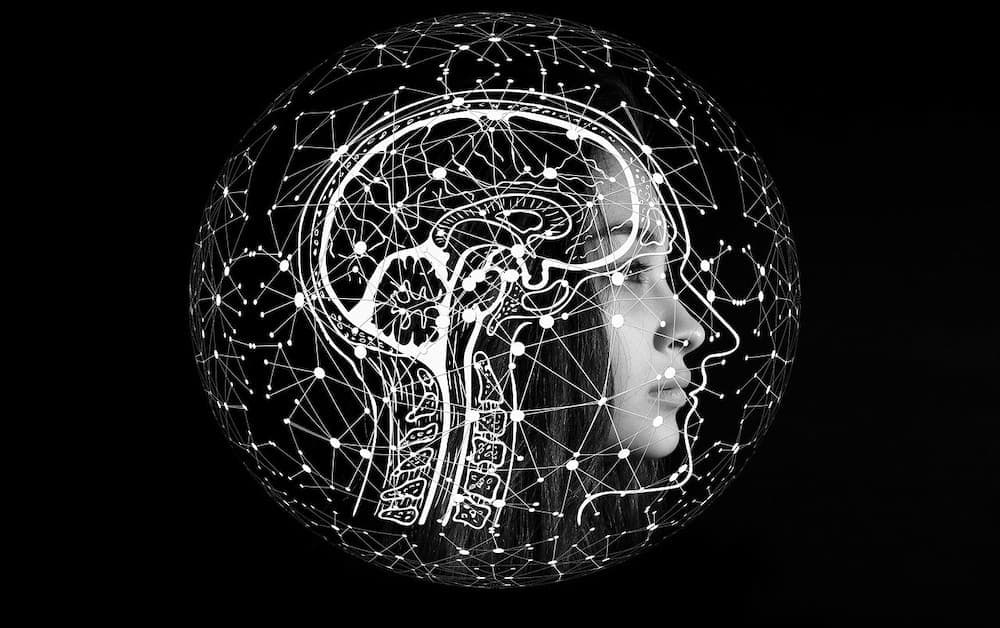Introduction
Artificial intelligence (AI) has become an integral part of our daily lives, from voice assistants on our smartphones to recommendation engines on streaming platforms. Artificial intelligence (AI) is revolutionizing various industries, from healthcare and finance to transportation and entertainment. With the increasing availability of data and advancements in machine learning algorithms, AI has the potential to transform the way organizations operate and make decisions. AI systems are transforming industries and enabling technological advancements that were once unimaginable. However, along with the benefits of Artificial intelligence, there are also significant ethical and regulatory challenges, particularly in the area of data privacy.
The massive amount of data generated and processed by AI technologies raises questions about how personal and sensitive data is collected, used, and protected. Organizations must ensure that the data used in Artificial intelligence systems is collected, stored, and processed in compliance with privacy laws and regulations to protect the privacy rights of individuals. The increasing capabilities of AI systems, including machine learning algorithms and automated decision-making, pose potential risks to privacy and security. In this article, we will explore the intersection of data privacy and AI, examining the challenges, concerns, and key principles for navigating this complex landscape.
The rise of AI: Unlocking the potential of data
Artificial intelligence has revolutionized the way data is collected, processed, and analyzed. AI technologies can process massive data sets and extract valuable insights, leading to healthcare, finance, and transportation advancements. However, this unprecedented ability to analyze data also raises significant concerns about privacy and security.
AI systems and data collection
AI systems rely on vast amounts of data to train and improve their performance. Data collection is a crucial step in the development of Artificial intelligence models, as it provides the necessary input for machine learning algorithms to learn and make predictions. Data sets used in AI systems can include various types of data, such as consumer data, sensitive personal information, and protected health information.
Data collection for AI systems can happen through various channels, including online platforms, mobile phones, IoT devices, and other sources. AI technology uses data to understand patterns, trends, and correlations, which are then used to make predictions and decisions. However, the sheer volume and diversity of data collected by AI systems raise concerns about the quality, accuracy, and security of the data used.
Privacy by Design in Artificial Intelligence
One approach to addressing privacy concerns in Artificial intelligence is the concept of “Privacy by Design.” This approach emphasizes the integration of privacy protections into the design and development of AI technologies rather than adding them as an afterthought. By incorporating privacy considerations from the initial stages of AI development, organizations can ensure that data privacy and protection are built into the AI algorithms and systems and that individuals’ rights and freedoms are respected.
Currently, there is a lack of emphasis on privacy in the development of many AI technologies. This can result in risks to individuals’ rights and freedoms, such as biased decision-making, unfair profiling by search algorithms, and unauthorized access to personal data. Organizations must adopt a Privacy by Design approach and prioritize privacy as a fundamental aspect of Artificial intelligence development and deployment.

Data Privacy Challenges in AI Systems
The use of data in AI systems presents several challenges for data privacy:
Data quality: The accuracy and reliability of the data used in AI systems are critical for the performance and integrity of the models. Data quality issues, such as incomplete or biased data, can result in biased AI models and inaccurate predictions. Ensuring data quality and integrity is a significant challenge in the context of AI systems.
Data processing and automated decision making: AI systems use data to make automated decisions, which can have substantial implications for individuals. Automated decision-making processes in AI systems, such as in credit scoring or job hiring, raise concerns about fairness, accountability, and transparency. The lack of human intervention in these decision-making processes can result in biased outcomes and privacy violations.
Sensitive data handling: AI systems can process sensitive data, such as biometric data, financial information, and health records. The use of sensitive data in AI systems raises concerns about privacy breaches, identity theft, and misuse of personal information. Ensuring the responsible handling of sensitive data is crucial to protect privacy in AI systems.
Algorithmic bias and decision making: AI algorithms are not immune to biases, as they learn from data that may contain inherent biases. Algorithmic bias in AI systems can result in discriminatory outcomes, perpetuate social inequalities, and violations of privacy rights. Addressing algorithmic bias is a critical challenge in ensuring AI technologies’ ethical and responsible use.
Data security and protection: The vast amount of data processed by AI systems raises concerns about data security and protection. Data breaches, unauthorized access, and data leaks can result in privacy violations, financial losses, and reputational damage. Implementing robust security measures to protect data used in AI systems is essential to maintain privacy and trust.
Existing privacy laws and regulations
Several privacy laws and regulations have been enacted to address data privacy concerns in the context of AI and other technological advancements. The General Data Protection Regulation (GDPR) in Europe, the California Consumer Privacy Act (CCPA), and the California Privacy Rights Act (CPRA) in the United States are some major prominent examples of privacy laws that have significant implications for AI systems.
The GDPR, the CCPA, and the CPRA provide individuals with rights over their personal data, including the right to know what data is collected, the right to request deletion of collected data, and the right to opt-out of data collection. These laws also impose obligations on organizations that collect and process personal data, including requirements for transparency, accountability, and consent.
In the context of AI systems, organizations must ensure that data collected and used in AI models comply with privacy laws and regulations. This includes obtaining valid consent for data collection, providing transparency about the data used and how it is processed, and implementing measures to address algorithmic bias and discriminatory outcomes.
Principles for responsible AI processing
To ensure the responsible and ethical use of AI technologies in the context of data privacy issues, several fundamental principles should be followed:
Transparency: Organizations should provide clear and understandable information about the data collected, its use, and its impact on individuals. Transparency is crucial in building trust and allowing individuals to make informed decisions about their data.
Accountability: Organizations should take responsibility for the data they collect and use in AI systems. This includes ensuring data accuracy, integrity, and security, as well as addressing algorithmic bias and discriminatory outcomes.
Consent: Organizations should obtain valid and informed consent from individuals before collecting and using their data in AI systems. Consent should be obtained in a transparent and easily understandable manner, and individuals should have the right to withdraw their consent at any time.
Fairness: Organizations should ensure that AI systems are designed and trained to be fair and unbiased. This includes addressing algorithmic bias and discriminatory outcomes and regularly evaluating the fairness of AI models throughout their lifecycle.
Security: Organizations should implement robust security measures to protect the data used in AI systems. This includes measures such as encryption, access controls, and regular security audits to prevent data breaches and unauthorized access.
Data minimization: Organizations should only collect and use the data necessary for the intended purpose of the AI system. Data minimization involves collecting the least amount of data necessary to achieve the desired outcome, reducing the risk of privacy violations.
User control: Organizations should provide individuals with control over their data used in AI systems. This includes the ability to access, modify, and delete their data, as well as the ability to opt-out of data collection.

Opportunities for data privacy in AI
While AI challenges data privacy, it also offers opportunities for enhanced privacy protection. For example, AI techniques such as federated learning and differential privacy can protect data privacy while enabling effective AI model training and inference. Federated learning allows the training of AI models on distributed data without sharing raw data, while differential privacy adds noise to data to protect individual privacy.
Another opportunity is the use of privacy-preserving AI technologies, such as secure multi-party computation (SMPC) and homomorphic encryption, which allow data to be processed without revealing the raw data. These techniques enable organizations to leverage AI while preserving data privacy, ensuring that sensitive information is not exposed during AI processing.
Role of regulatory agencies
Regulatory agencies play a crucial role in ensuring the responsible use of AI technologies and protecting data privacy. These agencies should establish clear guidelines and regulations for organizations to follow when developing and deploying AI systems. They should also monitor and enforce compliance with privacy laws and regulations, investigate complaints, and impose penalties for violations.
In addition, regulatory agencies should collaborate with industry stakeholders, academia, and other stakeholders to promote responsible AI processing practices. This includes conducting research, providing guidance, and fostering partnerships to address the challenges and concerns as artificial intelligence evolves with the intersection of data privacy and AI.
Conclusion
The intersection of data privacy and AI presents significant ethical and regulatory challenges that must be addressed to ensure the responsible and ethical use of AI technologies. When developing and deploying AI systems, organizations must prioritize transparency, accountability, consent, fairness, security, data minimization, and user control. Existing privacy laws and regulations, such as GDPR and CCPA, provide a framework for organizations to follow, but continuous efforts are needed to adapt to the evolving landscape of data management and AI technologies.
Regulatory agencies play a crucial role in overseeing and enforcing compliance with privacy laws and regulations related to AI. Collaboration between regulatory agencies, industry stakeholders, academia, and other stakeholders is essential to address the ethical concerns associated with data privacy in the context of AI.
In conclusion, as AI advances and becomes more widespread, organizations must prioritize the responsible and ethical use of AI technologies by considering data privacy and implementing appropriate safeguards. Compliance with existing privacy laws and regulations, adherence to responsible AI principles, and active engagement with regulatory agencies are essential steps toward ensuring AI’s responsible and ethical use in data privacy.




